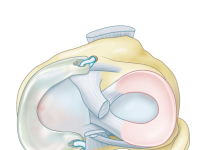The round brings the company’s total raise to $93 million.
Causaly, a tech company using AI to interpret large datasets and literature, announced it closed a $60 million Series B round led by ICONIQ Growth.
Marathon Venture Capital, Index Ventures, Pentech Ventures, EBRD and Visionaries Club also participated in the round, as did former chairman and CEO of Johnson & Johnson Alex Gorsky and CEO and cofounder of Datadog Olivier Pomel.
WHAT IT DOES
Causaly offers life science researchers a generative AI platform for drug discovery and development.
The London-based company will use the funds to scale its product and grow commercial relationships.
“Our recent funding round is a significant milestone for Causaly. This capital enables us to strengthen long-standing customer relationships and invest into our technology to gain invaluable insights from scientific data. By harnessing the power of AI and our platform, we will drive transformative advancements in therapeutic innovations, accelerating the path from bench to bedside.
“This funding fuels our mission to make knowledge more accessible and impactful as we augment our infrastructure, scale operations and expand globally,” Yiannis Kiachopoulos, cofounder and CEO of Causaly, told MobiHealthNews in an email.
MARKET SNAPSHOT
Causaly secured $4.8 million in Series A funding in 2019 and $17 million in 2021 to grow its team and expand its reach.
In 2020, the company announced it would assist London’s Global University (UCL) with COVID-19 research, including assisting in the development and delivery of low-cost breathing aids, antiviral candidate trials and rapid sequencing of the disease.
Another firm working to discover drugs using AI is Israel-based AION Labs, a company built under a government tender that includes pharma giants AstraZeneca, Merck, Pfizer and Teva, alongside venture capital firm Israel Biotech Fund, strategic partner Amazon Web Services and German independent research institute Bio Med X.
In February, AION announced the launch of its second startup, DenovAI, which will develop an AI-enabled computational biophysics platform that can discover potential antibodies directed toward specific epitopes (the part of an antigen molecule recognized by the immune system to which an antibody attaches itself). The company said the platform will design antibodies from scratch, then suggest which candidates will likely make effective drugs.




